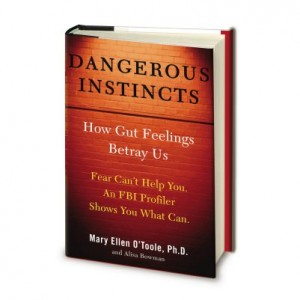
I’ll start with an embarrassing confession about quite possibly one of the worst interviews I’ve ever conducted.
It all went down after I got a new job as a health writer for a publishing company. I was in my 20s, green and in over my head.
I was assigned to write a chapter about the throat for a health book for men. The chapter was to include pearls of wisdom from various physicians. I guerilla dialed doctor after doctor until one answered the phone. That’s when my problems started. I couldn’t think of what to ask, so I went with, “Can you tell me about the throat?”
There was a long silence, then he said, “Can you be a little more specific?”
“Well, what is it exactly?”
For the next five minutes I listened to him tell me I had no business doing what I did for a living.
Eventually I wrote the chapter and managed not to get fired, but it wasn’t easy.
It’s been years since that incident. These days, I like to think I’m a better interviewer. Still, I occasionally end up interviewing a source who gives one-word, evasive or jargon filled answers.
Until very recently, I thought of those sources as duds or bad interviewees.

Then I met former FBI profiler Mary Ellen O’Toole, who I worked with on her new book, Dangerous Instincts: How Gut Feelings Betray Us. In it, O’Toole applies an FBI profiler’s tools to real life. She teaches how to read and screen people, make decisions, and, yes, conduct interviews with everyone from stonewalling spouses to hired help.
A chapter on interviewing techniques made me realize how much my own interview skills lacked.
Here is O’Toole’s advice for getting sources to open up and give the types of quotes editors love:
1. Build rapport. People are more likely to open up when they feel comfortable, so create a connection that puts your source at ease. Do this by thanking the person for taking the time to talk to you, telling them how much you admire their research or expertise, or sharing something you have in common.
2. Study a source’s personality. Some people are thinkers and others are feelers. If you ask a thinking person, “How did you feel?,” you probably won’t get much of an answer. If you keep asking a thinking person how they feel, you might eventually get an answer like, “I don’t know how I feel.” You may figure they’re putting up a brick wall when in reality, they are telling the truth. Instead, try asking, “What’s your opinion about…” or “What is your experience with…,” or “What do you recommend?”
 3. Just stop talking. Before I worked with O’Toole, my interview with a doctor might sound like this: “I’m writing about headaches and I really love that I’m writing about them because I get them a lot, you know, and it will be great to be able to learn from you so I can treat myself and not get so many headaches. I’m so happy you agreed to talk for me for this reason. So let me tell you about this story and the magazine and myself…” It went on for what must have seemed like a painfully long time. From O’Toole I learned that silence was my friend. I learned to listen most of the time. An interview is about the source, not the interviewer. By practicing the art of shutting up, I now get much more out of the people I interview.
3. Just stop talking. Before I worked with O’Toole, my interview with a doctor might sound like this: “I’m writing about headaches and I really love that I’m writing about them because I get them a lot, you know, and it will be great to be able to learn from you so I can treat myself and not get so many headaches. I’m so happy you agreed to talk for me for this reason. So let me tell you about this story and the magazine and myself…” It went on for what must have seemed like a painfully long time. From O’Toole I learned that silence was my friend. I learned to listen most of the time. An interview is about the source, not the interviewer. By practicing the art of shutting up, I now get much more out of the people I interview.
4. Go off script. Keep things conversational. When you talk with a friend, you don’t go from question to question without any give and take. You listen to what they say and then ask appropriate follow-up questions. Likewise, in an interview if you stick to a script it’ll feel cold, as if it’s being conducted by a robot. A source may feel like you’re not really listening, become uncomfortable, and stop saying as much as a result.
5. Take your time. In interviews, we ask people who don’t know us and have no reason to trust us to reveal intimate details of their lives. Depending on the subject matter, it might take several interviews for a source to trust you enough to share what you need to know. Push too fast and they may feel like an object and shut down. Instead, ask a question at a time and consider each answer thoughtfully. It’s also good to avoid compound questions, such as, “Tell me more about how the heart works and why the heart is so important and how you got into this profession.”
Find additional interviewing tips in Dangerous Instincts, available wherever books are sold.
Boy, do I feel your pain on that interview anecdote, Alisa! As writers, we cover lots of different topics and while of course we should prepare for interviews, you can’t be an expert in everything. Thanks for these tips!
Loved your tips for interviewing, Alisa! Very helpful. Sometimes we just get into a routine and forget to change it up. And, the difference between thinkers and feelers. Great!
thx,
judy
I certainly use the conversational aspect and the leaving room for silence quite a bit. great to think what may be learned from other professions about interviewing.
Actually, your first question to the doctor was a great one…you just needed to ask it a little differently…more like: what IS a throat? What is its purpose in the human body? Where does it start and where does it end? Those are the kinds of basic questions that often leads to profound and interesting answers. But its so basic that many beginning writers are afraid to ask for fear of sounding stupid. So you had the right instincts, but you need to work on the wording.